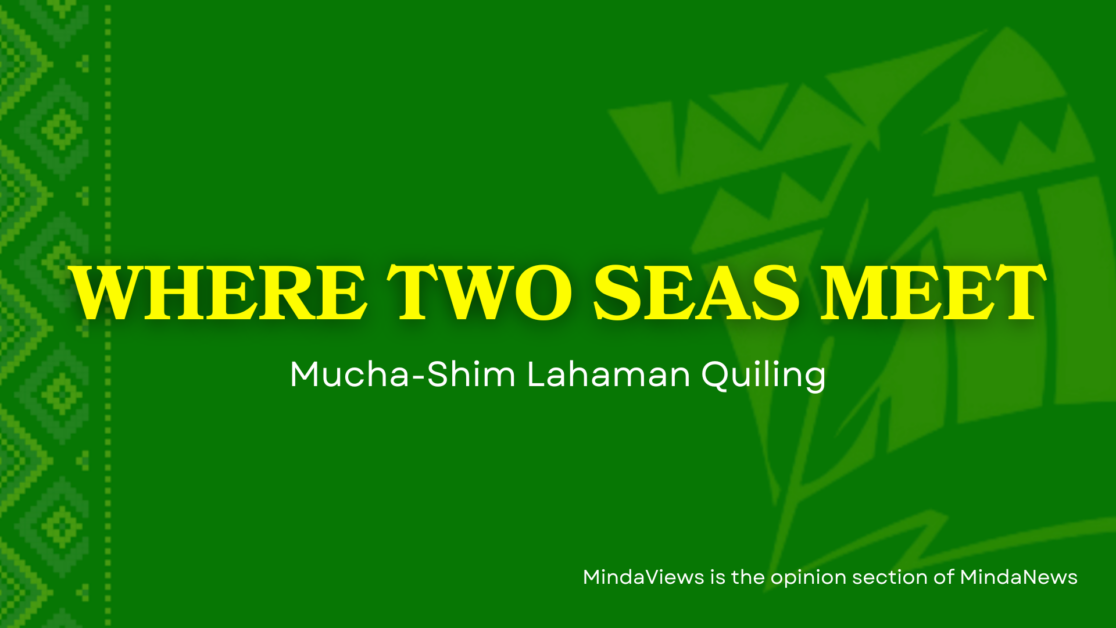
“In the figure of the witness of a postcolonial modernity we have another wisdom: it comes from those who have seen the nightmare of racism and oppression in the banal daylight of the everyday. They represent an idea of action and agency more complex than either the nihilism of despair or the utopia of progress.” ( Bhabha 1994: 365)
This passage from Homi Bhaba, staunch proponent of epistemic decolonization, insinuates of a third space, inserted and sutured, even disrupting and running against the very grains of the ideological binaries in the radicalisms of neoliberal anarchism and socialism that post modern and post Marxist history have proven to have failed in fully congealing into offering pragmatic alternatives to the collapse and decay of capitalism to usher genuine social change and social justice.
This third space invokes the potency of action and agency as both practice and tool from a cultural location (i.e. often coming from the vantage and frames of ancient wisdom and tradition), and knowledge as resource.
The dialectic importance of these currencies – cultural location and knowledge – are our handles for DECOLONIALISTS’ theorizing and exercising politics and power.
Here, I take and build on the case of Sulu traditional knowledge — authority as system of ‘Ilm self-instituting on its own amidst so-called advancements in civilization more often designed to wipe out and banish traditional knowledge from the slate of documentary and scientific materialism.
In the panels of the United Nations, no less, self-proclaimed progressives and human rights advocates often succeed in placing themselves in opposite fences and at loggerheads with tradition that they accuse as “harmful” if not “extremist,” conservative, and reactionary.
Meanwhile, inside typical Philippine classrooms, formalism, structuralism and rationalism are over-writing traditional knowledge. Orality is devalued while oral traditions are classified as mythic and quasi-science. Divine-inspired revelations and books are disqualified as primary sources. This is helped in no small measure by the bureaucratic dictum of “separation of church and state” in Christian-dominant Philippine politics that echo the same campaign of traditions’ erasure in the bureaucratic legal parlance.
But what the scientificity of modern education of the Western mould actually rejects and disavows are the classic wisdom of our heritage from our Indic, Malay, Sino and Arabic ancestors. Philippine national education is a great forgetting of our heritage from the glorious civilizations and ethics created by great religions.
Yet, folk wisdom but only took a back-seat. Although they disappeared from the center-stage of this theatre where modern culture and civilization is recreated and enacted, traditional knowledge lives on. It is vibrant in the works of contemporary scholars and intellectuals who consider themselves “seekers” of the forgotten path.
In the works of Sulu’s traditionists and academists of my time such as Parang Sulu-born Benhar Jambangan Tahil, the wisdom and practice of Pagtuhan blossoms and continues flourishing albeit in the margins and interstices. Scholars such as Tahil ignites and still conflagrates the hearts of learners be they inside structured settings of a classroom or in the obscurities of peasant and fishermen communities. The well-spring of their wisdom abound in the seabeds as mother-pearls thriving. In far-flung islands they lie hidden in the deepest ocean. They bear the sweetest fruit in the wilderness of the hinterlands, many of which remaining unreachable by letters and electronic signals where people hold on to the ropes of the ancients.
Traditionist scholars – minorities and marginal they maybe in academic community – strive to bring the wisdom of the folk to classrooms as they eloquently speak of them in academic conferences and gently scatter their fragrance in chatrooms and halls of intellectual debates. There, they quote Ibn Arabi, Ibn Rushdie, Ibn Khaldun, Hamza Fansuri, Abdul Qadir Jailani, and the eternal wisdom of the mathnawi of Mawlana Jalaluddin Rumi.
These contemporary erudite are the Ahlus Suluk of Sulu archipelago, their scholarships and practice of knowledge draw out from the authority capital of a long tradition of prophetic knowledge-moulds of the makdumin, sheiks and awliya; and the charismatic authorities of the sultan, the maharaja and panglima, whose ethics and politics are grounded in the ideological bases of wisdom rightly-guided by revelation and devotive practice of Pagtuhan.
Even before institutional Islam had come to complete it, the blend of indigenous wisdom and mysticism engendered traditional systems of knowledge.
The knowledge and ways of knowing of the Mukali are still well-preserved. The mukali are mystic scholars who are ‘unschooled’ in any formal institution. This traditional transfer of wisdom are produced, reproduced and passed-on from generation to generation by ascetic practitioners and mystic learned, who are also described to be “seekers of the path of God.”
Schooled in the bosom of Muslim tradition and culture, in Mindanao State University in Tawi-Tawi and in Marawi City, Dr. Tahil rose from the rank of classroom teacher, became school registrar, and two-term vice president of a State College in Zamboanga City.
In his doctoral dissertation, Tahil outlines what I will consider an “insurrection of subjugated knowledge” not only as critic to colonial legacy left in education, but also argues that for tradition-based Muslim Mindanao society, strategic leadership in academic affairs means political will on the part of management to opt for the prior and affirmative utilization of customary resources of knowledge, information, and rich living traditions which shall redound to socio-cultural resilience and the viability of our society not only to compete in the knowledge market, but as appropriate and efficient recourse to sustain our cultural capital.
((MindaViews is the opinion section of MindaNews. Mucha-Shim Lahaman Quiling is Chief Executive Officer and Senior Researcher of Sulu Current Research Institute and Sharif Ul hashim Incorporated. She is also the secretary of the Sangguniang Bayan ng Jolo. This piece is a recast excerpt from a 2017 full article on Decolonizing Education in Mindanao and Sulu)







